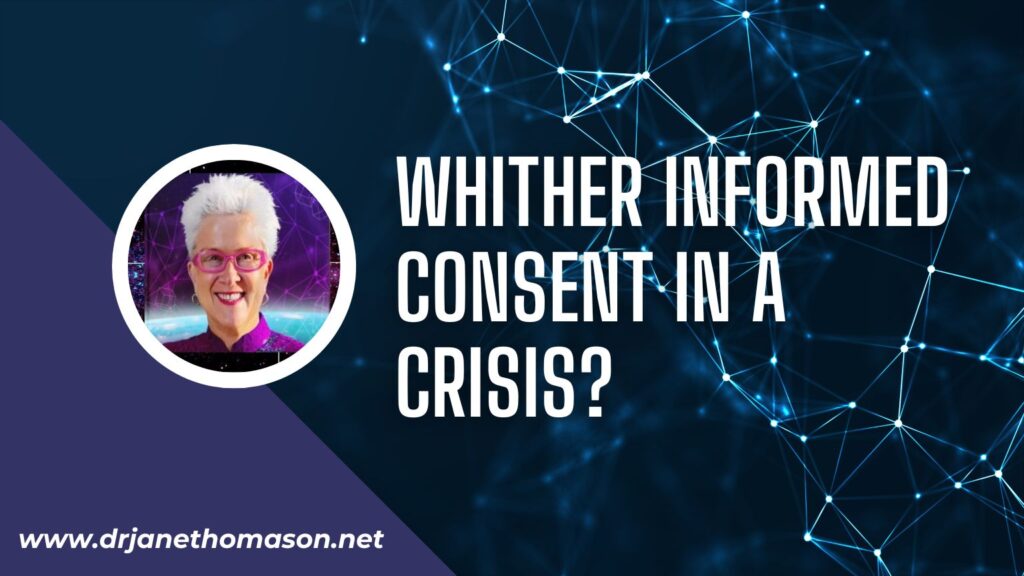Lets face it, we have been living with fear and uncertainty and social isolation for most of 2020. We have had to rely on others, governments and scientists to make decisions for society and for us as individuals. Do we even know what those decisions are, on what basis they have been made, or how they evaluated choices?
As people race to find a vaccine, new technologies emerge every day and new methods of developing vaccines or medications to treat various diseases emerge much more rapidly. Are we willing to accept that the traditional ways to obtain informed consent and to safeguard some of those foundational principles are being overstepped or blurred, or people sign on their own, that they’re willing to waive them all.
How can we balance the challenge between being fearful for our life and wanting a vaccine and still making sure that our rights are not being violated?
Dr Kenneth Goodman reflected “It’s important to make a distinction among risks, harms and wrongs. That’s why valid consent is so powerful. If I am not being exploited, I know what I’m getting into and if I am running a risk, then if the risk actually occurs , if I’m actually injured, for example, I know that I may have been harmed, but I have not been wronged.”
At a minimum, we need to know that scientists and not politicians advise the process, that the rules for valid consent have been followed, that there is transparency, and people know who’s responsible.
Writing code is a lot easier than figuring out what values we ought to bring to these discussions. Does the world operate by the same values? No one should get to say, “ in my part of the world, we’ve always exploited vulnerable people that just defines us as a people”. There are certain values that should be universal, and when we’re better able to define and to serve them, including sharing better, the opportunity for digital science and security are going to be managed all the more in ways that are good and wholesome, and productive and that people’s rights are preserved.
